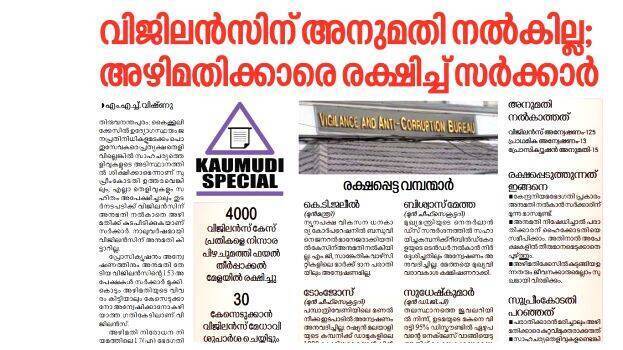

THIRUVANANTHAPURAM: Even though the government has not given permission for prosecution in corruption cases, vigilance has decided to file chargesheets against public servants including officials and elected representatives. This is based on the Supreme Court's order that circumstantial evidence is sufficient to punish public servants even if there is no direct evidence of asking or taking bribes.
Vigilance chief Manoj Abraham has issued an order that sections of the Indian Penal Code can be imposed for conspiracy to commit corruption, and even if the government has not given permission for prosecution under the Prevention of Corruption Act, then the charge sheet can be added under IPC-120 (b) for conspiracy and IPC-109 for incitement. Government sanction under CRPC-197 is not required to prosecute illegal acts committed by public servants including government officials.
'Kerala Kaumudi' had reported that the government did not give permission to the vigilance for further action even when they applied with all the evidence of corruption, and the government rejected 153 applications of the vigilance seeking permission for prosecution and investigation. The government has not given permission for 125 vigilance investigations, 13 preliminary investigations and 15 prosecutions.
Will not escape even if government gives protection
This is how they are protected:
1) Government can take three months to give approval as per Central amendment.
2) Complainant can approach High Court if permission is denied. So, the application will be hidden.
3) During this time, high officials and employees caught in corruption cases will retire comfortably.